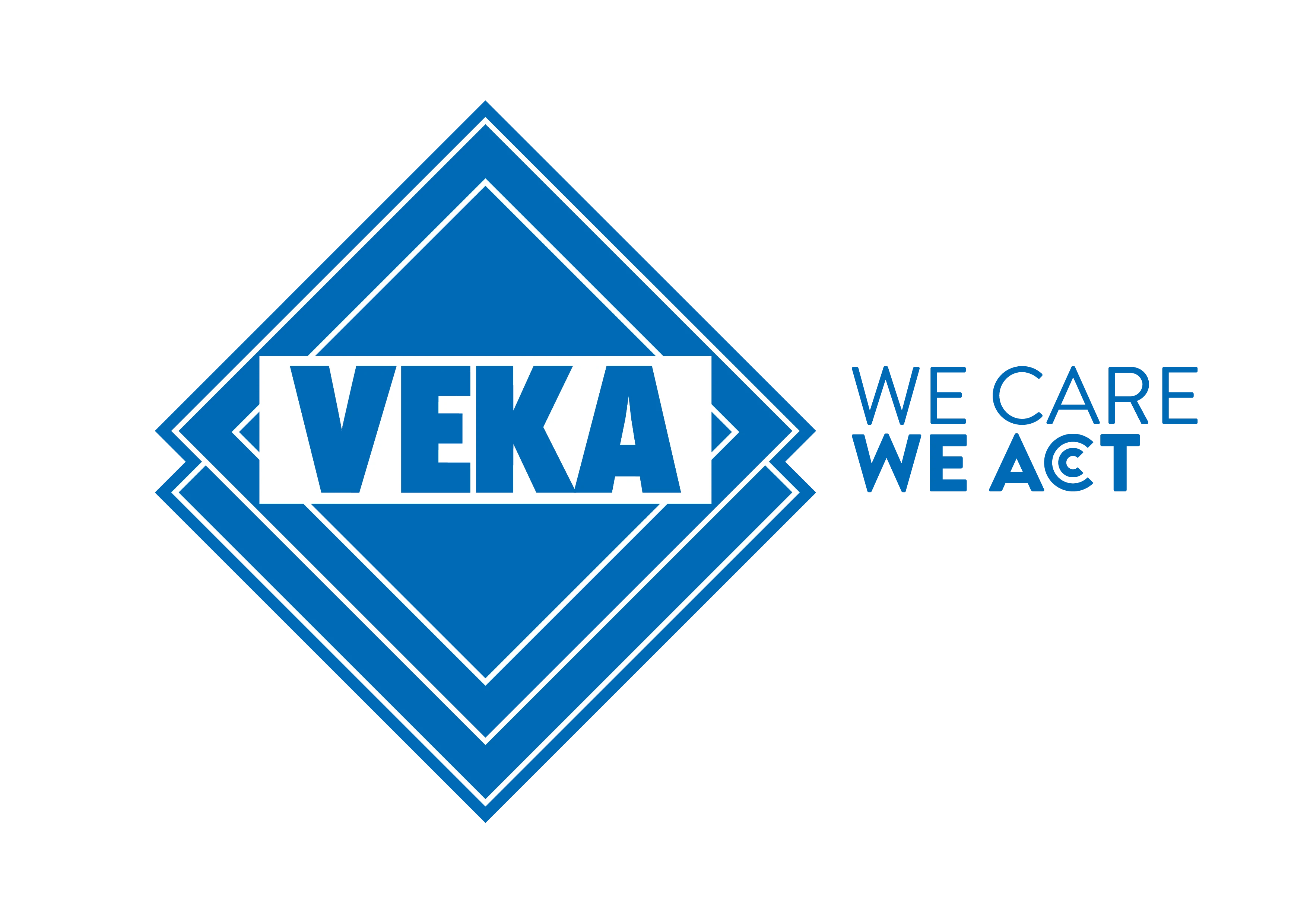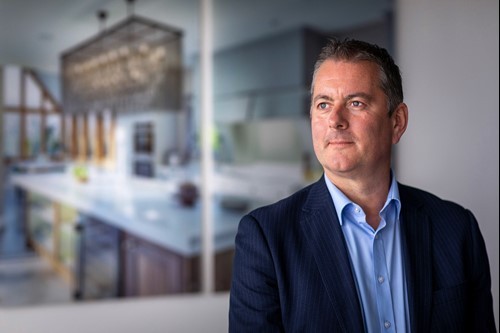Neil Evans in his role as managing director of VEKA plc, explains how the company has started the year with record breaking results.
Was it difficult taking over in the middle of a pandemic?
Last autumn, when I was still sales director, we had a VEKA plc board meeting and started to set out a new five-year plan for the business. This helped the transition, because it meant I was able to lead on a vision that we had all collectively developed.
The last few months have been about building on this plan and starting to roll it out across the business. It’s about making sure our people understand and believe in what we want to achieve and take ownership of the strategy at all levels of the business.
The feedback we’ve had from our management team is that this is a very welcomed new level of transparency and long-term thinking - in the past, we’ve tended to communicate year-by-year.
The pandemic provides many challenges, so we live with it but don’t let it stop us acting on our future.
The industry has experienced a remarkable upturn since the start of the year – how has VEKA coped?
We have just had our biggest January in the history of the company. Sales were 20% ahead of budget, even though two of our largest customers went into administration last year. For context, January would normally be our second quietest full trading month.
Peoples’ view of their home has undoubtedly changed, and home is going to be more important now than ever before, whether as a place we want to invite our friends and family back into or as a new part of our working environment.
The fenestration sector is usually predictable, with single digit growth and some set times of the year when you know demand is going to be high. But that has all been blown out of the water. We face new challenges daily, but for us, the key is having our team focused on meeting the challenges of the here and now every time and having a strategy that we can quickly adapt for the good of our customers. As an industry we have all been fighting the challenges of raw materials availability and cost inflation and this is set to continue for much of 2021.
The scale of VEKA Globally, the culture of our family-owned business, and our focus on our core competence of providing our customers with extruded profile for window and door systems has ensured we have coped with it extremely well so far. We are not complacent though as the challenges have not gone away.
With what we see happening around us we believe that there has never been a better time to be sure that being a VEKA customer is good for your business; and if you are not currently a VEKA customer then isn’t it time to trust us to be your safe pair of hands.
So, what’s your key area of focus for the next 12 months?
The most important thing for us over the next year is to secure good, reliable day-to-day performance for our customers. We're in the most unusual and challenging of times now - supply chains are stretched, some suppliers are struggling to fulfil their contracts, and we need to work hard to make sure we continue to deliver.
I like to take learning from any situation, and as a business we learned a lot from lockdown. We have emerged more agile now, and more efficient.
We will be forward thinking too and make real investment in our people and the culture of our business all aimed at ensuring that we out-service our competition and, in turn, our customers out-service theirs.
What was the first big change that you made?
One immediate decision I made was to have HR reporting directly to me. It starts to show how much we truly value people and how they are our magic ingredient. As a business, we’re putting an added focus on people, recognising that post pandemic that’s more important now than it’s ever been. We want to look after the people who look after our business.
We’ve got a good culture here at VEKA and we’re well respected in Lancashire – but I think there is always room for improvement, and we can be an even better employer and involve people even more in how we do things.
Across the business we’re redefining our values and a key part of this is reinforcing ideas of trust and making sure that we are truly accountable to each other and genuinely one team where we recognise and appreciate the value that each person makes to our business. There is an incredible amount of work done every minute of the day to deliver the highest quality products and services reliably to our customers and every one of us is critical to that.
So what makes for good leadership?
From my point of view, I think consistency and good communications are key, so people always know what’s expected of them. That’s where our 5 year strategy comes into play. Understanding “how the work really works” is critical and that is best done by those who do the work day in day out, in order to find better ways that make a real valued difference.
I come from a varied background, mainly service, process and sales focused. Selling isn’t just about relationships, personality and a ‘you win some, you lose some’ attitude. It is about delivering against customers’ needs quickly and accurately and making sure it all works. Our relationships with our customers are vital to us and doing what we say we are going to do is the best way for that relationship to be healthy. I’ve always been a conscientious and systemic planner too, and I think it’s important to follow up, appraise and reflect on why things have happened, learning, and pausing to give thanks along the way.
You also have to be inherently curious and believe that some new questions can unlock some new thinking within the team.
From a personal point of view, what has been your biggest business challenge?
If I look back across my career, possibly the biggest risk anyone took on me was when VELUX appointed me as Sales Director after leading Customer Operations; they demonstrated incredible trust and belief in me and a huge and invaluable learning experience. I remember when I was appointed people asking what I knew about sales (which was just about nothing) and those same people a few years later reflecting that knowing nothing about sales had been key.
And there are similarities with taking over as MD. Yes, I know sales and customer service at VEKA but that only makes up 10% of the business – there’s 90% that I don't have the same level of experience of. But I’m naturally inquisitive, I want to know how things work, so while I’m on a learning curve, I will constructively question everything with a new perspective, which will be good for me and the business.
Plus, I’m fortunate enough to have a strong leadership team with a number of 'experts in their fields', all bought into a shared strategy, so we will be able to reap the rewards and see our ambitions realised.
Resilience in business is never more important than it is today. How have you ‘learnt’ resilience throughout your career?
I was made redundant once, and at the time it was the most devastating time of my life but equally, on reflection, it was the best thing that ever happened to me. People around me helped, they showed me that I had transferable skills, they gave me perspective and I think that made me a lot more resilient. Endings are often beginnings.
The other thing is to realise that you cannot control everything, though one of the best ways to be resilient is to be focused on your plan to deliver and improve the things you can deliver. Never get too high, never get too low and take nothing for granted.























